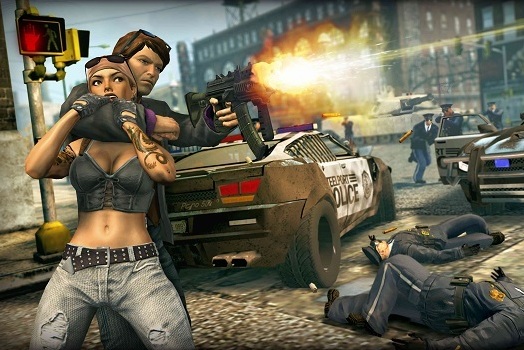Nowadays, the media often turns to video games as a scapegoat for a lot of real-life violence. Is this justified, or is it simply an unfair method of attracting more readers? Zaib Nasir finds out.
Video games and violence are a pair that just happen to go hand in hand. It’s a couple that is often highlighted by (typically) conservative adults, and is relentlessly split up by (usually) prepubescent teens, but can video games really be attributed to real-life violent acts? Where’s the evidence of this, and why do games get such bad press?
There certainly are a handful of cases where a link can be seen. Breivik stated that he trained for attacks carried out in Norway using Call of Duty, Lanza (who carried out the Sandy Hook shootings) also apparently ‘trained’ using first person shooters. Yet the criminals who carry out these acts are often mentally unstable, with a warped sense of reality. This is exemplified by Evan Ramsey, who gunned down one of his fellow students. He said: “I did not understand that if I (…) pull out a gun and shoot you, there’s a good chance you’re not getting back up (…) You shoot a guy in ‘Doom’ and he gets back up. You have got to shoot the things in ‘Doom’ eight or nine times before it dies”. Ramsey’s mental health was in question to begin with, but it still remains a common theme within crimes committed like this: these games brought out what these shooters were already susceptible to. Despite this, for the vast majority of cases, finding solid links to crime and video games is rare. So if there’s only a handful of cases, why do video games get so much bad press? What’s spurring it on and why is it still such a hot topic? Maybe there’s a more tactical reason behind the bad publicity. We only have to look at one of the most popular franchises to find the answer.
Once upon a time in the 90s, a little game development company by the name of DMA Design created a game called Race’n’Chase. It was a sort-of open city ‘cops and robbers’ experience, where you could play as either the good guys who maintained the order, or the bad guys who could cause mass chaos. The problem was, playing as robbers proved to be a lot more fun, and all the developers’ energy went into making that the main component of the game. The issue was, however, how can you sell a game that centres on anarchy and being the bad guy? Let’s not forget that this was an era where Mortal Combat was a hot target for its depiction of violence. So to sell this game, bad publicity was the answer. DMA Design employed publicist Max Clifford, the brains behind one of UK’s most infamous headlines, ‘Freddie Starr ate my hamster’. Clifford drove anti-Race’n’Chase press in conservative newspapers to create bad publicity for the game, deliberately throwing it into the line of fire. In turn, it created huge sales for a no-name franchise; a no-name franchise that turned out to be Grand Theft Auto, with DMA Design eventually becoming Rockstar Games.
This may be a one-off example, but the bottom line is that violent and controversial games will always create bad press. It works in favour of the game companies, and it generates newspaper sales. Carmageddon, Bully, Hatred… the list goes on. So, do video games cause violence? Is there anything to worry about? That’s up to you to decide, but bear in mind: it’s estimated there are 1.2 billion gamers in the world. If video games were a scapegoat for real life violence, the world would have a real problem on its hands…
I say, game on everyone.






Naz
Oct 03. 2015
Zaib Nasir raises some interesting points. The medium may have changed but the message expounded by the ‘good’ people who rely on the Daily Mail for their world view has always remained the same – pre-video games it was violence on TV that was cited as the great evil. That ultimately led to the so-called ‘video nasty’ which garnered so much bad press that you just had to see what all the fuss bad. I hasten to point out that since seeing one particular ‘nasty’ I have never owned a chainsaw or been to Texas let alone massacred anything. But now such films – and even worse if you consider Saw, Hostel – are regarded as classics of their genre.
As an aside, interesting to see that Max Clifford, with all his PR dexterity, could not save himself from scandal – or is that another publicity stunt?